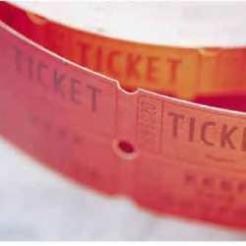Current lottery regulations are holding charities back from raising more money according to a consultation document which will form the basis of a campaign to push for lottery regulation reform.
The consultation document released today follows on from a summit in early February in which charities and lottery operators discussed the current licensing regime and its impact on charity income.
Joe Saxton, of nfpSynergy, who called the summit and authored the document, is asking charities to put forward their views on a series of proposed demands to take to government and local authorities.
One of the more contentious issues is the 80:20 rule, which demands that charities running lotteries must receive at least 20 per cent of the stake after expenses and the prize draw is taken out. For many charities this poses a significant challenge due to the costs associated with lotteries. The Institute of Fundraising is calling for the rule to be abolished altogether, but the document itself proposes that the 80:20 calculation be made on a charity’s entire lottery programme over the course of five years, rather than one and that associated income, such as donations made alongside ticket purchases, be included in the overall turnover.
The strongest language is saved for the £10m a year turnover limit for each society lottery programme and £4m for any one draw, which is described as “farcical” and preventing fair competition. The document recommends that the cap be scrapped entirely. A survey conducted by nfpSynergy and Fundraising magazine. however, found that this was not a major issue for most charities, many of which operate well under the £10m limit. Last July, the DCMS pledged to look into the issue of limits, but no reforms have yet been announced.
The general regulatory environment in which charity or society lotteries also requires significant reform, the document suggests. Charities running a lottery turning over less than £1m a year should not have to get a licence from the Gambling Commission and rather than forcing charities which run online lotteries to obtain a separate remote licence for doing so, there should be one licence allowing charities to run both paper-based and online lotteries.
The document also calls for charities to be relieved of the obligation to contribute to the fund to address problem gambling, given that the prevalence of problem gambling related to lotteries – although not scratch cards – is extremely low.
Responses to the consultation should be made by 28 May, 2012.








